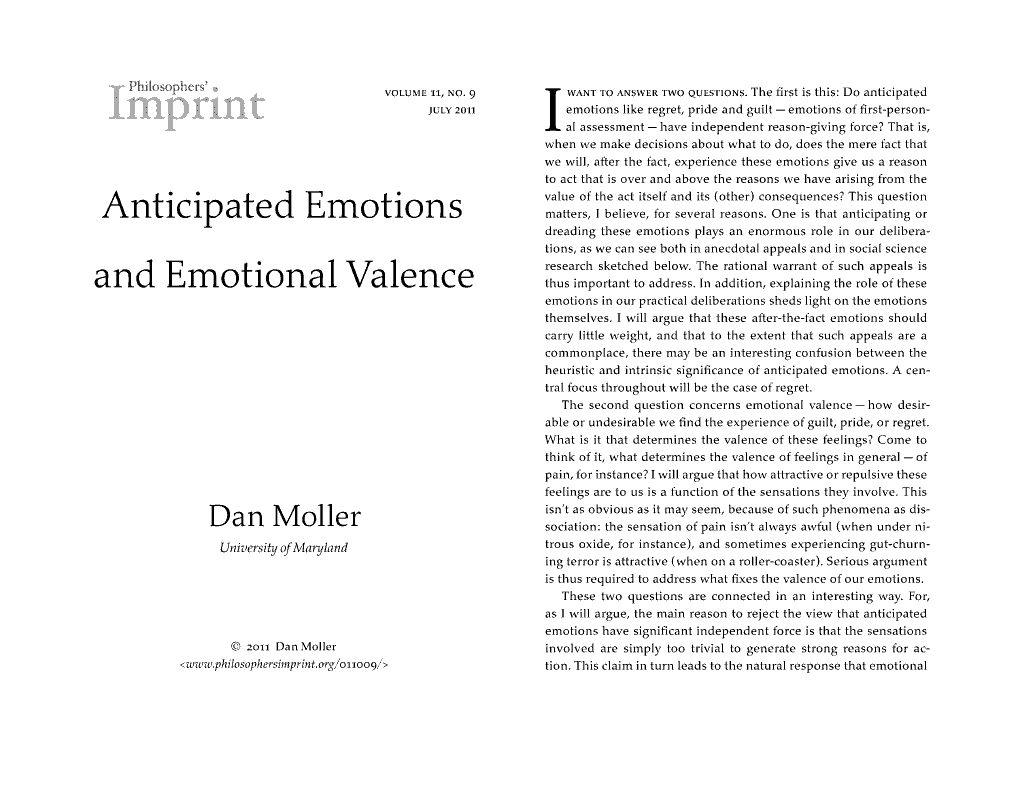Anticipated Emotions and Emotional Valence
Skip other details (including permanent urls, DOI, citation information): This work is licensed under a Creative Commons Attribution-NonCommercial-NoDerivatives 3.0 License. Please contact [email protected] to use this work in a way not covered by the license.
For more information, read Michigan Publishing's access and usage policy.
Abstract
This paper addresses two questions: first, when making decisions about what to do, does the mere fact that we will feel regretful or guilty or proud afterward give us reason to act? I argue that these emotions of self-assessment give us little or no reason to act. The second question concerns emotional valence — how desirable or undesirable our emotions are. What is it that determines the valence of an emotion like regret? I argue that the valence of emotions, and indeed of feelings like pain more broadly, is a function of the sensations they involve. As I suggest, understanding the point about emotional valence helps us answer the first question about anticipated emotions. The paper concludes with a discussion of death-bed regrets, and of whether teenagers should listen to their annoying parents.



